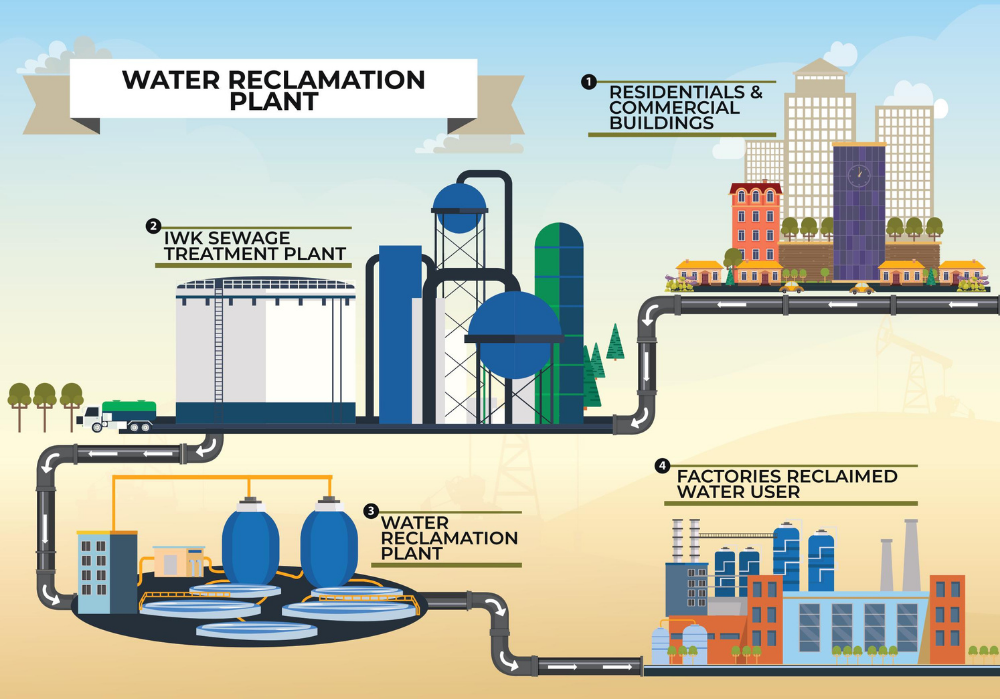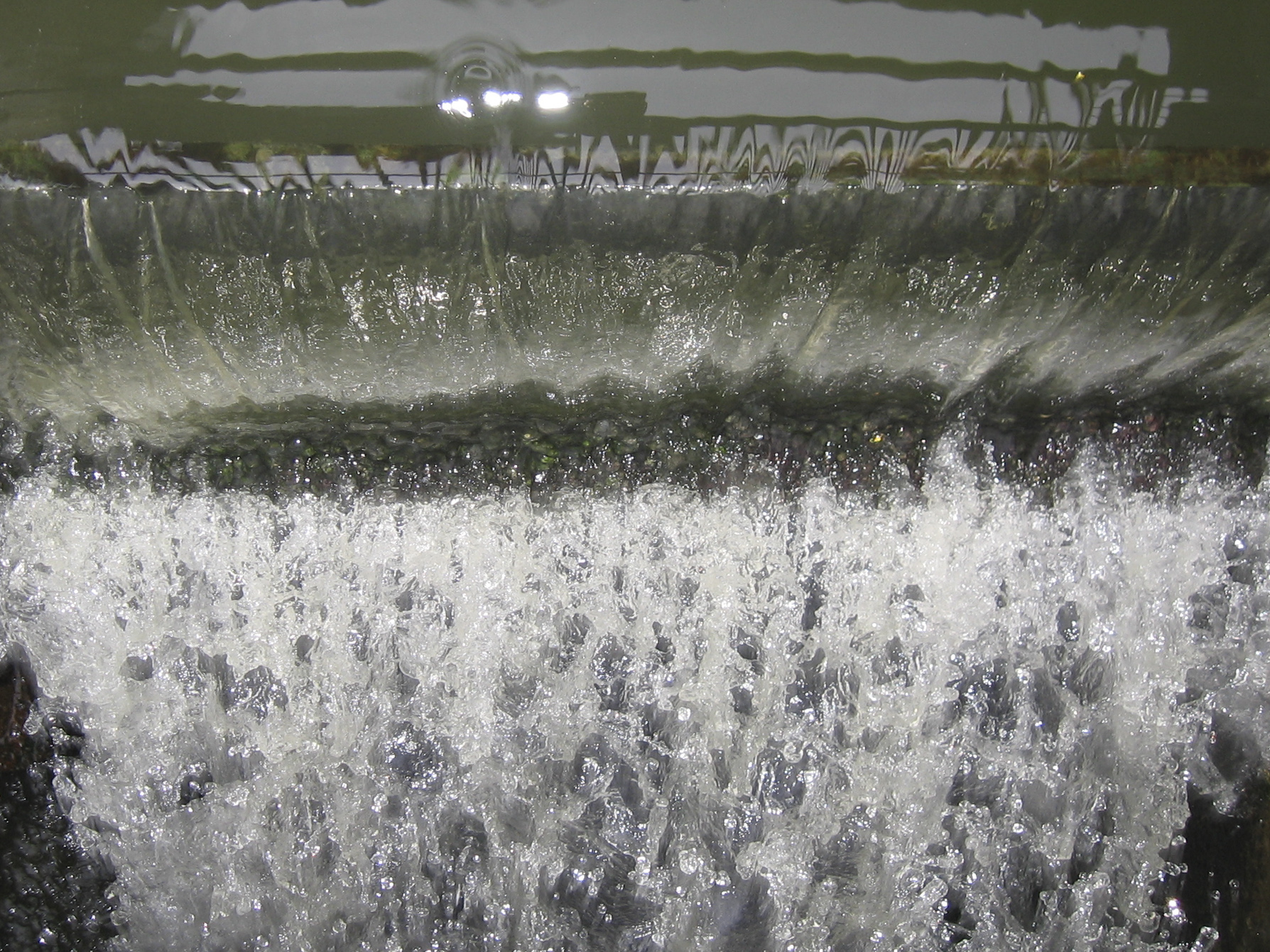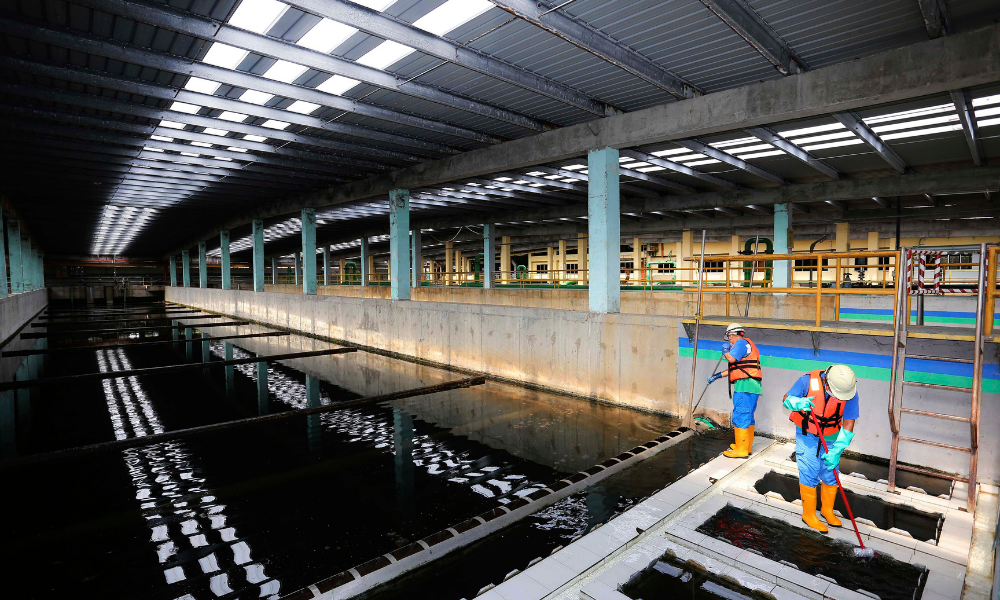Why wastewater a concern?
About 80% of the world’s wastewater is released into the environment without adequate treatment or in some cases, untreated, according to a World Bank report released to mark the 2020 World Water Day.
Wastewater, or water-carried waste, be it from the bathroom, toilet, kitchen, laundry and drain, or from businesses and industry, if left untreated or poorly treated, will find its way into the soil and water bodies such as rivers, lakes and oceans, causing water pollution and public health issues, among others. However, the national sewerage company does not intend to allow that to go untreated or to waste.

How IWK contributes to sustainable water recycling mission to decrease environmental impact
Indah Water Konsortium (IWK) Sdn Bhd has embarked on a water reclamation initiative whereby wastewater treated by IWK’s sewage treatment plant will undergo further treatment to be reused for non-potable purposes.
The national sewerage company has recently teamed up with Pengurusan Air Selangor Sdn Bhd (Air Selangor) to carry out sustainable water recycling initiatives through a water reclamation plant project to supply non-potable water for industrial purposes.
The collaboration, which is supported by the Ministry of Environment and Water (KASA) and the National Water Services Commission (SPAN), brings together the company owned by the Minister of Finance (Incorporated) and the nation’s largest water service provider to form a special purpose vehicle (SPV) company to carry out the project.
According to IWK’s CEO Narendran Maniam, the bio effluent treated by IWK at its wastewater treatment plants will be the new source of water to Central Water Reclamation Sdn Bhd (CWR) for further treatment at CWR’s treatment plant that is equipped with advanced technologies, to produce non-potable treated water that can be safely used for non-domestic purposes, which will be distributed by Air Selangor through a dedicated pipe network.
Repurposing wastewater for good use
Be it domestic or industrial wastewater, in vast amounts by nature, if left unchecked, will become one of the major pollutants of the water environment. Sources of wastewater may originate from homes, offices and industry, for example.
The initiative between IWK and Air Selangor will definitely open up opportunities for water operators to obtain alternative water sources for non-potable purposes which in turn can contribute towards maintaining the country's clean water resources and reducing pressure on water sources, thus increasing circular economy practices.
Wastewater can be treated and reused for a number of purposes: industrial consumption, irrigation, recreation, replenishing aquifers; and treated sewerage can also be converted into valuable by-products: biosolids and biogas.
Turning waste into resource
So how can wastewater shift from waste to resource? The sewage treatment plants work as a wastewater resource recovery facility to generate value for wastewater, which will ultimately contribute to a circular economy, an economic system aimed at eliminating waste and the continual use of resources. This is where IWK comes into the picture, as a purpose-built entity specialising in wastewater treatment.
The key agenda here is that we need to focus on resource recovery in wastewater treatment – through wastewater recycling – as a more sustainable way to ease our dependence on raw water, which can be put to better use, especially for human consumption.

Creating an alternative water resource
Treated wastewater that is compliant with the standards stipulated by the Department of Environment can be safely released into receiving water bodies, therefore creating a reliable alternative source of water to address the mismatch between available water resources and the rising demand, driven by urbanisation and industrialisation.
The dreadful water supply disruptions that we experienced recently plus the higher water tariff for industry players, serve up two other good reasons why we should never take things for granted. We need to look at the potential of treated wastewater seriously simply because modern development comes at the expense of the depletion of natural resources.
Economically efficient and environmentally sustainable
In other words, we should diversify our nation’s water supply portfolio through an economically efficient and environmentally sustainable approach to ensure adequate and safe water for all ie. water for people, food and rural development, economic development, and the environment.
In the Malaysian context, incorporating a secure, rainfall-independent source of water means having a more holistic water management, thanks to the commitment and ingenuity in putting wastewater to good use – to ease the constraints on conventional water resources taken from rivers, lakes, reservoirs and aquifers.
Bear in mind that relying heavily on water catchment makes us vulnerable to weather variability including prolonged drought, not to mention water disruption due to contamination at source or the treatment plant itself.
Realising treated wastewater’s economic value
By adopting a proactive approach in the face of possible water scarcity in the long run while creating economic value for treated wastewater, IWK is embarking on a noble mission towards a greener nation, for the benefit of both the industrial and residential consumers.
A research led by prominent water expert professor Menachem Elimelech of Yale University, United States, points to two sustainable methods to increase water supply beyond what is available from the hydrologic cycle: desalination and water reuse.
Meeting rising demands through recycling and reusing
Recycling wastewater is more cost competitive and suitable for our country. IWK, with nearly 30 years of expertise can play a key role in providing an alternative water source to meet the rising demands by local industries who use water for producing, processing, washing, diluting, cooling, or even transporting a product.
Presently, there are nearly 7,000 sewage treatment plants with sewage pipes spanning 19,134km managed by IWK, which can produce approximately 5,000 million litres per day (MLD) of treated effluent. The support from state water operators is critical in achieving a shared goal of making good use of our water resources.
IWK is targeting industrial areas such as those located in Shah Alam, Bandar Baru Bangi, Bayan Baru, Seberang Perai and Kulim by recycling and reusing wastewater for industrial use. The collaboration with Air Selangor is a testament to a long-term commitment towards optimising our water resources while protecting the environment.
The treated effluent released by IWK is safe enough for industrial reuse, having met the regulatory requirements, including the efficient disposal of high concentration pollutants such as nitrogen and phosphorus. IWK is going the extra mile to realise the green aspirations mapped out by the Green Technology Master Plan Malaysia 2017 - 2030, which advocates the recycling of a third of bio-effluent and 100% of sludge by 2030.
Greening up through bioeffluent, biosolids and biogas
The green technology initiative undertaken by the Pantai 2 regional sewage treatment plant is also enhanced with systems that can harvest rainwater for cleaning purposes, reuse bioeffluent for cleaning and landscaping, and reuse biogas and solar panels for electricity generation to support plant operation.
Bioeffluent (water), biosolids (sludge) and biogas (methane) are wastewater treatment by-products released during the treatment process. The Edge reports that on a nationwide scale, IWK produces between 5,000 and 6,000 MLD of clean water, roughly the same volume of water consumed in Selangor and Kuala Lumpur.
IWK could also produce about 120,000 tonnes of sludge annually. For the biogas, it could generate up to 2,400 MWh of energy at full capacity as derived from all its plants nationwide. The Pantai 2 plant houses two biogas engines that can each produce up to 330 kWe.
The local community can also reap the benefit from a purpose-built recreational area called Pantai Eco Park that sits on top of the sewage treatment plant on the ground level. The 12-hectare Pantai Eco Park is equipped with social and recreation facilities such as a community hall, jogging track, futsal court, football field and badminton courts.

Safeguarding the nation, the environment and society
Recycling wastewater is unavoidable in the future. It is a sustainable approach and good for the environment. Call it a proactive strategy to enhance water sustainability and security in the long run.
At the same time, IWK is also working on intensifying its obligation to provide better service and amplifying ways to ensure convenience for its customers. For that reason, IWK is working on upgrading some of its aging assets, particularly the sewage treatment plants, with 644 plants already identified and scheduled for improvements.
These improvements with the support from KASA and SPAN, is a testament for IWK’s continued commitment in delivering an efficient, safe and modern wastewater service to safeguard the environment and public health.
Additionally, customers can now make their IWK bill payments and complaints or enquiries via various online and offline platforms such as its mobile apps, e-wallets, as well as increasing various payment touch points which includes all petrol pumps and major convenience stores and pharmacies throughout the country.
Enrich your wastewater treatment knowledge and IWK’s payment methods at https://www.iwk.com.my/

